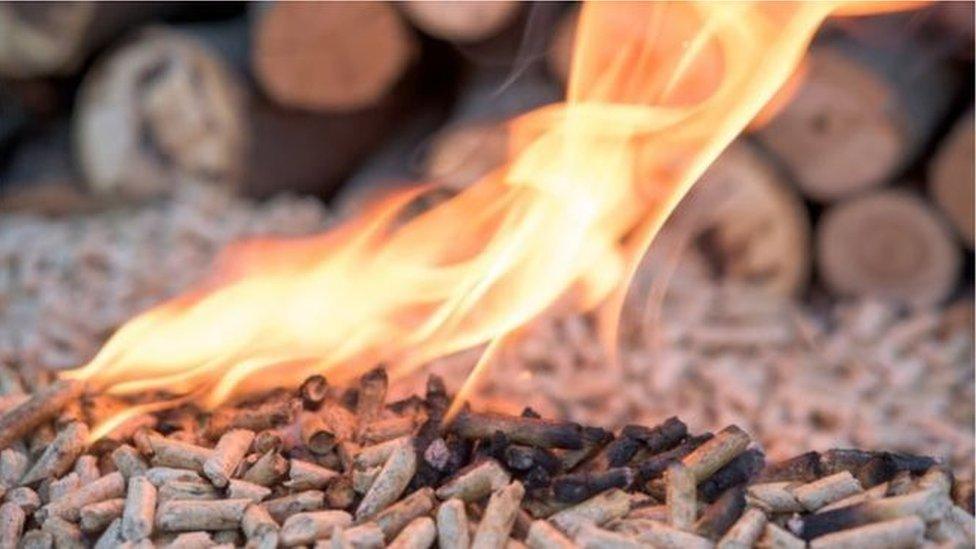RHI scandal: Arlene Foster's former adviser resigns over botched heating scheme
- Published
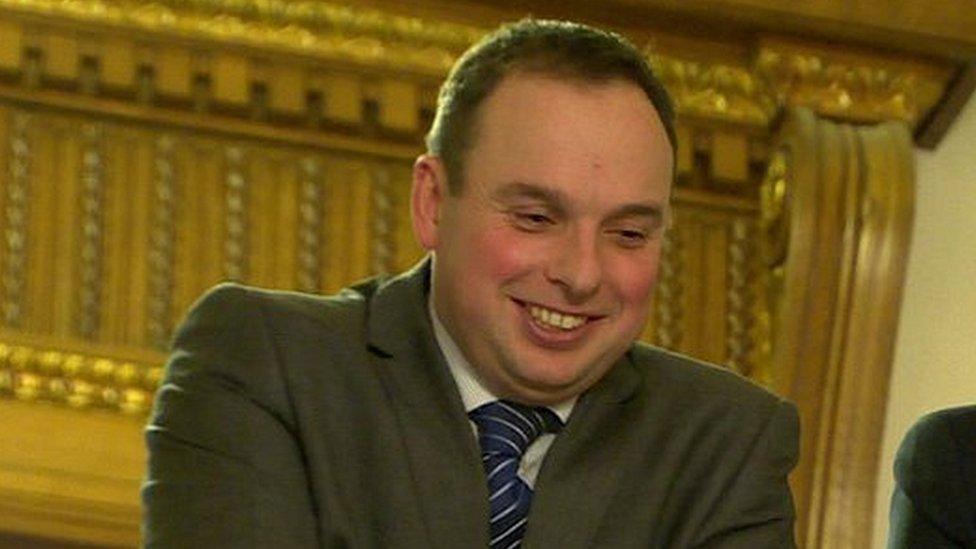
Dr Andrew Crawford was an adviser to the then enterprise minister Arlene Foster when the RHI scheme was created
A former adviser to DUP leader Arlene Foster has resigned after claims he exerted influence over a flawed energy scheme that went vastly over budget.
On Wednesday, a senior civil servant said he believed that Dr Andrew Crawford had influenced the decision to keep the Renewable Heat Incentive (RHI) scheme running.
Dr Crawford denies the claim, saying he "acted with complete integrity".
Mrs Foster set up the scheme in 2012, when she was enterprise minister.
Dr Andrew McCormick named Dr Andrew Crawford while giving evidence to Stormont's PAC
Dr Crawford was her adviser at the time, and had been working as an aide to Agriculture Minister Michelle McIlveen until his departure on Thursday.
Former first minister Mrs Foster said she "regretfully accepted his resignation" to quit.
"I have been notified that Dr Andrew Crawford has resigned as special adviser in the Department of Agriculture," she said.
"Andrew was a faithful servant, not only to this party but also to the people of Northern Ireland, through his work as special adviser in various departments."
Mrs Foster added that Dr Crawford felt that "he was becoming not only a distraction to the important work of his minister, but indeed he was becoming the story".

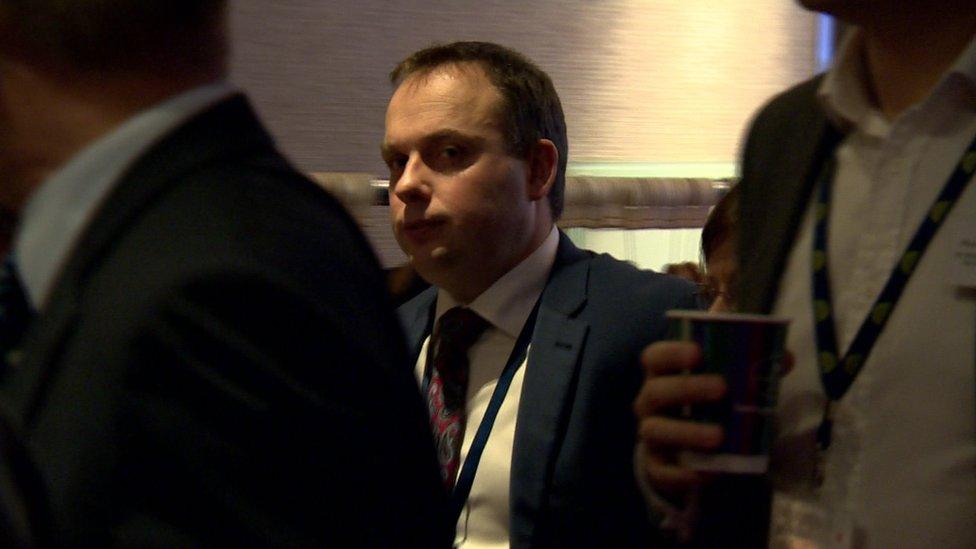
Who is Dr Andrew Crawford?
A son of a farmer from Beragh in County Tyrone, Dr Andrew Crawford is a former employee of the Ulster Farmers' Union.
He was an assistant to the former DUP MEP Jim Allister before the North Antrim politician quit to form the Traditional Unionist Voice (TUV).
Dr Crawford was a long-time aide to Arlene Foster, working with her when she was enterprise minister and then finance minister.
Jonathan Bell, who succeeded Mrs Foster as enterprise minister, accused him of preventing the closure of the scheme, but Dr Crawford has denied that claim.

In a statement, Dr Crawford said he would appear before an independent inquiry, which would show that "at all times, I acted with complete integrity in all that I did".
Dr Andrew Crawford's Statement
"In light of the allegations made at the Public Accounts Committee yesterday I believe it is appropriate that I step back from my position in government and resign as a Special Advisor. I am conscious I have become the focus of the story.
I want to see a full and independent inquiry set up immediately so that it will become clear that at all times I acted with complete integrity in all that I did. I will be happy to give a full account of all of my actions during this period to the inquiry and for due process to take its course.
I will continue to offer my full support to the party and intend to campaign for the election of the strongest DUP representation in the next Assembly. I do not intend to make any further public comment on these issues prior to an inquiry."
One of the claimants of the RHI scheme is Dr Crawford's poultry-farmer brother.
Dr Crawford's decision to stand down came 24 hours after he was named by Dr Andrew McCormick, the permanent secretary at the Department for the Economy, as the DUP adviser who had applied pressure to delay the introduction of cost controls in the scheme.
Another of the party's advisers announced on Wednesday that he would step aside from any future involvement in the RHI scheme after failing to declare a family link.
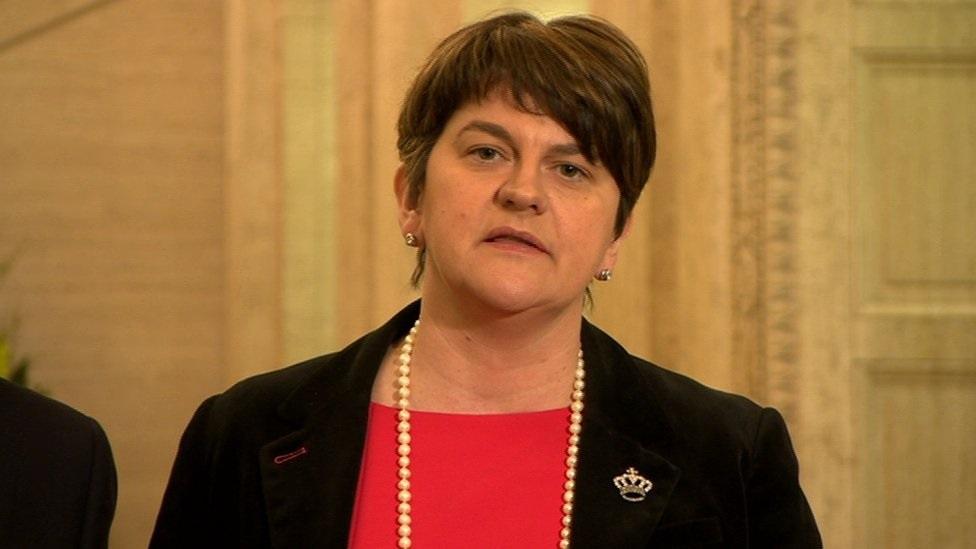
Arlene Foster said she "regretfully" accepted Dr Crawford's resignation as a DUP adviser
The scandal surrounding the botched RHI initiative has led to the collapse of the Northern Ireland Executive and the calling of an assembly election, set for 2 March.
The scheme was set up to encourage businesses and other non-domestic users to stop using fossil fuels and instead install renewable heating systems, mostly burning wood pellets.
But the subsidies it paid out were far greater than the cost of the pellets, leaving the scheme open to abuse as claimants could earn more cash the more fuel they burned, which led to a projected £490m overspend.
On Thursday, Finance Minister Máirtín Ó Muilleoir announced that he would establish a public inquiry into the scheme, and its findings will be released in full.
Mrs Foster said she was "looking forward" to the inquiry's report as "we will finally get the truth of what happened".
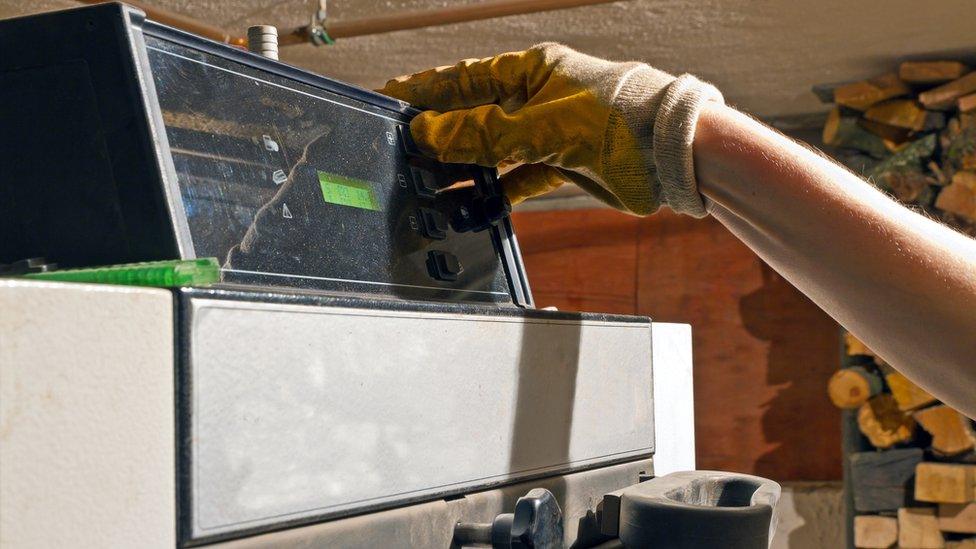
Overgenerous fuel subsidies meant the RHI scheme vastly overspent, with a projected cost of £490m
Also on Thursday, Stormont's Economy Committee heard that the Treasury is "very concerned" about the scheme's cost.
In his second appearance before an assembly committee in two days, Dr McCormick said: "They read the Northern Ireland newspapers, they have noticed this."
The overall cost of the scheme is projected to hit £1.2bn over the next 20 years, of which almost half-a-billion pounds would have to come from Northern Ireland's block grant.
Executive plans to cut the overspend have been met with criticism from a group representing claimants of the initiative.
John Martin of the Renewable Heat Association told the Economy Committee that the "rush" to pass the plan has "bypassed the scrutiny mechanisms that are the cornerstone of good government".
- Published18 January 2017
